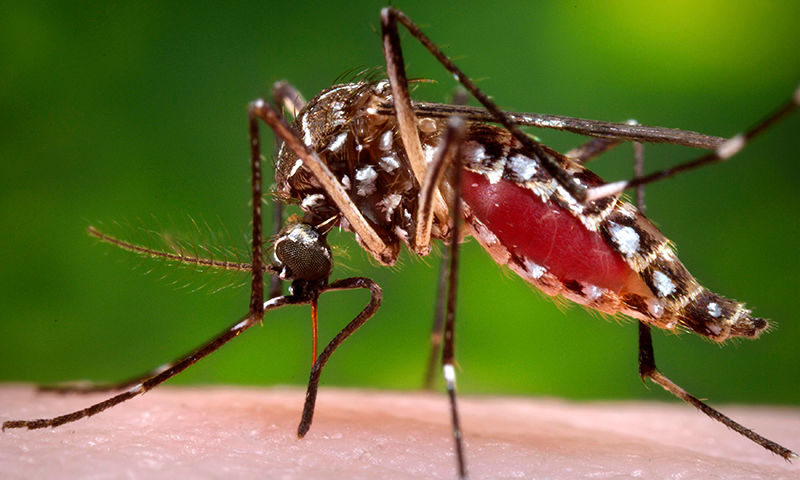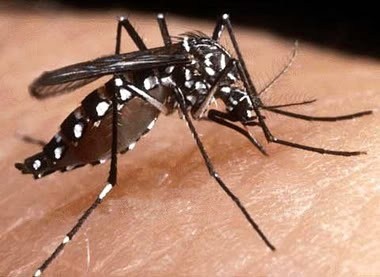
Dengue fever is a mosquito-borne viral infection. The virus which is responsible for dengue is known as dengue virus, abbreviated as DENV. Mainly, it has four types as DENV 1, 2, 3, and 4. Some dengue infections can cause mild illness but occasionally these infections may transform into lethal ones known as severe dengue.
About 50 % of the population of the world is at risk. There are 100-140 million infections of dengue each year. Till 1970, there were only 9 countries in the world which were infected with dengue but now there are more than 100 countries which are at risk for dengue. The largest number of cases of dengue fever in Pakistan was reported in 2019.
The first case of dengue fever in Pakistan was reported in 1994. Then, a sudden increase in the cases of dengue fever was recorded in Pakistan and the annual trend for dengue fever was started when it was first recorded in Karachi in November 2005. Health authorities in Pakistan are constantly reporting an ongoing outbreak of dengue fever. In Peshawar, Khyber Pakhtunkhwa (KP) province of Pakistan, this outbreak was first reported on 8 July 2019 by the Khyber Teaching Hospital.
In Pakistan, more than 16,000 confirmed dengue cases and 257 mortalities were recorded only in Lahore, and more than 4500 cases and 60 deaths occurred in the other cities of Pakistan. The mortality rate of dengue is less than 1 %.
Causes of dengue fever
It is a mosquito-borne viral infection transmitted by Aedes aegyptii. The virus is called dengue virus which is abbreviated as DENV. It is a single-stranded RNA virus. The family is Flaviviridae and the genus is Flavivirus. This virus cannot transmit from humans to human but the virus multiplies in the female mosquito named Aedes aegyptii.
When the normal mosquito bites the infected human, then this virus comes from an infected human to mosquito. When this mosquito bites the healthy individual, then it causes the dengue fever in that healthy individual. Mosquito acts as an alternate host. For the breeding of these mosquitoes, rainwater plays an important role.
Transmission of dengue virus
Transmission of the virus occurs from mosquito to humans by the bite of an infected mosquito. There are also many other species of Aedes genus which can also act as vectors but they are secondary for dengue as compared to Aedes aegyptii. The main site for replication is the midgut of mosquito. Then, it spreads to the salivary glands as secondary tissues.
The primary way of transmission for DENV between humans is by the mosquitoes which act as a vector, causing the spread of this dengue virus from infected individuals to healthy ones through the bites. There is also a chance for the transmission of this infection from mother to her child but with less possibility.
Identification of the dengue fever causing mosquito

Signs and symptoms of dengue fever
The following are various signs and symptoms associated with dengue fever.
- Fever, rashes, and pain
- Headache
- Fatigue
- Pain in the eyes
- Loss of appetite
- Muscle pain and rashes
- Nausea (vomiting)
- Diarrhea
- Pain in the joints
- Nose bleeding or bleeding in the gums
- Pain in the belly or stomach
- Increase in the size of the liver
- Platelet count is also reduced in the dengue
- Failure of the circulatory system
- The shock, which can cause death
Diagnosis of dengue fever
Mainly molecular testing is used for the diagnosis of dengue infection. The PCR test is routinely used for it. It is the most reliable method. The blood samples are collected from the patients and further used for the diagnosis of dengue fever. By this test, doctors can detect dengue fever by checking the virus in the blood.
The immunoglobulins, IgM and IgG, can also be checked in the dengue fever. If IgM and IgG antibodies are present in the initial blood sample, it means the individual is infected with dengue virus within the last few weeks. If IgM is negative and IgG is positive, it shows that the individual had an infection but in the past.
Prevention and control of dengue fever
Various approaches are used to prevent and control dengue fever. These measures are summarised below:
- Prevent yourself from the biting of an infected mosquito
- Always use mosquito repellants at home
- The doors and windows of the room should be secured and also free from minute holes
- Try to use air conditioning in rooms if available
- Mosquito nets should also be used around living place
- Try to leave the place having more population of mosquitoes
- Prevent the laying of eggs of the mosquito
- Never keep old tires and the flower pots in the house
- Separate the infected individual
- Always wear shirts with long sleeves and full pants
- Repellants can also be used on exposed skin
- Cover your legs and arms while going outside or during sleep
- Baby carriers should be properly covered
- The bed net should always be used during sleep
- Care is necessary after the sunrise and before the sunset
- Cleanliness should be maintained in house, working places, and other related places
- Remove the water from the trays of the refrigerator regularly.
- Take care during the rainy season as dengue chances are more in this season
- Try to remove all breeding places of this mosquito
- Always cover the toilet bowls
- The water tanks should be properly cleaned and fully covered
- The recommended insecticides should be used in water containers with the proper dose
- Always use mosquito repellant creams on the body but with proper care
- Dispose of the used tires, containers, and bottles with proper management
- If you feel uncomfortable, immediately contact the doctor
- Try to drink more fluids with the addition of electrolytes to keep the body hydrated
- Always take rest as much as possible if you are sick
- You can also take paracetamol or acetaminophen for the control of fever and relief from pain
- Never use the aspirin as it cause more bleeding
- The food which is responsible for enhancing the immunity, for example, citrus food, garlic, yogurt, almond, turmeric, and ginger should be used for the prevention of dengue fever
- The people should be well aware of the protective measures against dengue fever
- The persons working in health care facilities should be well trained to better care the population
- The quick response team should be available for the areas having more chances of dengue so that rapid care and treatment can be provided to the infected ones
- Personal protective measures should be used by doctors and other medical staff working in the wards of dengue patients
- Fumigation should be regularized
- The posters, banners and other public awareness programs should be spread in all areas where more people interaction is present.
- The students should be well informed about dengue fever for example; the lectures should be given by the teachers in schools, colleges, and universities
- The clinical testing and management of dengue patients should be free of cost so proper care to those individuals who are at risk
- The sources of stagnant water should be removed completely
- The areas where more mosquitoes are present should be targeted for the control of larvae and adult mosquitoes
- The community should take steps to reduce the mosquitoes in and around the living places as home and neighborhood
Treatment of dengue fever
Currently, there is no specific treatment for dengue fever but if it is detected earlier, the chance of mortality can be reduced. It is a self-limiting illness. The supportive care is necessary for it as fluid replacement. Bed rest is very essential in the treatment of dengue. Nonsteroidal anti-inflammatory drugs (NSAIDs) and corticosteroids should not be given to the patients, but the infected individual can use acetaminophen to relieve the pain.
Read more from the same author…
Author: Gohar Khadim, Department of Pathobiology, Faculty of Veterinary Sciences, Bahauddin Zakariya University, Multan, Pakistan.
GOOD REVIEW
GOOD WORK
Remarkable effort dr.shb
God bless you